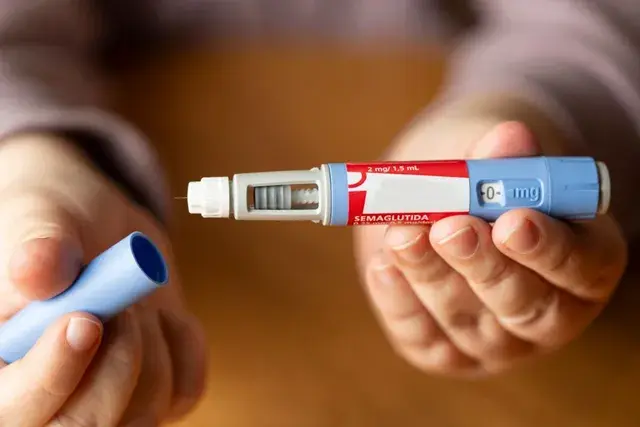Impact of Hydration on Weight Loss: How Much Water Should You Drink?
- fitmedicalweight2
- Sep 6, 2024
- 4 min read

Hydration is a crucial component of a healthy lifestyle and plays a significant role in weight management and overall health. The relationship between water intake and weight loss is well-documented, and understanding this connection can help you optimize your weight loss efforts. But how much water should you actually be drinking, and what impact does it have on your body’s ability to shed pounds? This blog explores the vital role of hydration in weight loss, providing insights into how much water you should drink and how it affects your body.
The Science Behind Hydration and Weight Loss
Water is essential for various physiological functions, including digestion, nutrient absorption, and temperature regulation. Its role in weight loss can be attributed to several key factors:
Boosts Metabolism:
Thermogenesis: Drinking water increases your metabolic rate, a process known as water-induced thermogenesis. Studies have shown that consuming 500 ml of water can increase metabolic rate by up to 30% for about 30-40 minutes.
Energy Expenditure: Higher metabolic rates mean more calories are burned, contributing to weight loss.
Reduces Appetite:
Satiety: Drinking water before meals can create a sense of fullness, leading to reduced calorie intake. In a study, participants who drank water before eating consumed fewer calories compared to those who didn’t.
Appetite Control: Staying hydrated helps control hunger signals, which can prevent overeating and snacking between meals.
Improves Exercise Performance:
Endurance: Proper hydration is crucial for optimal exercise performance. Dehydration can lead to reduced endurance, strength, and overall effectiveness of workouts.
Recovery: Staying hydrated helps in faster recovery post-exercise by maintaining electrolyte balance and aiding in muscle repair.
Enhances Digestion:
Digestive Efficiency: Water aids in the digestion and absorption of nutrients and helps prevent constipation. Effective digestion ensures that the body can utilize nutrients properly, which is essential for maintaining a healthy metabolism.
How Much Water Should You Drink?
The amount of water you need can vary based on factors such as age, gender, activity level, and climate. However, a common recommendation is the “8x8 rule,” which suggests drinking eight 8-ounce glasses of water per day, totaling about 2 liters or half a gallon. While this is a good general guideline, individual needs can differ. Here’s how to determine your specific water requirements:
Body Weight:
General Rule: A common formula is to drink 30-35 milliliters of water per kilogram of body weight. For example, a person weighing 70 kg (154 lbs) should aim for approximately 2.1 to 2.5 liters (71-85 ounces) of water per day.
Activity Level:
Exercise: Increase your water intake if you’re physically active. For every 30 minutes of exercise, it’s recommended to drink an additional 350-700 milliliters (12-24 ounces) of water.
Intensity: Higher-intensity workouts or prolonged exercise sessions may require even more hydration.
Climate and Environment:
Hot or Humid Conditions: In hot or humid climates, you may need more water to compensate for increased sweat loss.
Altitude: Higher altitudes can also increase water needs due to drier air and increased respiratory rate.
Health Conditions:
Medical Considerations: Certain health conditions, such as kidney issues or heart disease, may affect your hydration needs. Always consult with a healthcare provider if you have specific health concerns.
Tips for Staying Hydrated
Maintaining proper hydration throughout the day is key to supporting weight loss and overall health. Here are some practical tips to help you stay on track:
Carry a Reusable Water Bottle:
Convenience: Having a water bottle with you at all times makes it easier to sip water regularly and keep track of your intake.
Flavor Your Water:
Add Natural Flavors: If plain water isn’t appealing, add slices of fruit, cucumber, or herbs like mint to enhance the taste without adding extra calories.
Set Hydration Goals:
Track Intake: Use apps or a hydration journal to monitor your daily water consumption and set reminders to drink water throughout the day.
Incorporate Water-Rich Foods:
Hydrating Foods: Include foods with high water content in your diet, such as fruits (e.g., watermelon, oranges) and vegetables (e.g., cucumbers, lettuce), to contribute to your overall hydration.
Monitor Your Body:
Signs of Dehydration: Pay attention to signs of dehydration, such as dark urine, dizziness, or dry mouth, and adjust your water intake accordingly.
Potential Pitfalls of Overhydration
While staying hydrated is crucial, it’s possible to overdo it. Excessive water intake can lead to a condition called hyponatremia, or water intoxication, where sodium levels in the blood become dangerously low. This condition is rare but can occur if large amounts of water are consumed in a short period without adequate electrolyte intake.
Conclusion
Hydration plays a vital role in supporting weight loss and overall well-being. By understanding how water impacts metabolism, appetite control, and exercise performance, you can use hydration as a powerful tool in your weight loss journey. Remember, the amount of water you need varies based on individual factors, so it’s essential to listen to your body and adjust your intake accordingly.
Drinking enough water, staying mindful of your hydration needs, and integrating water-rich foods into your diet can help optimize your weight loss efforts and promote a healthier lifestyle. So grab that water bottle and make hydration a key component of your daily routine for better health and weight management.







Comments